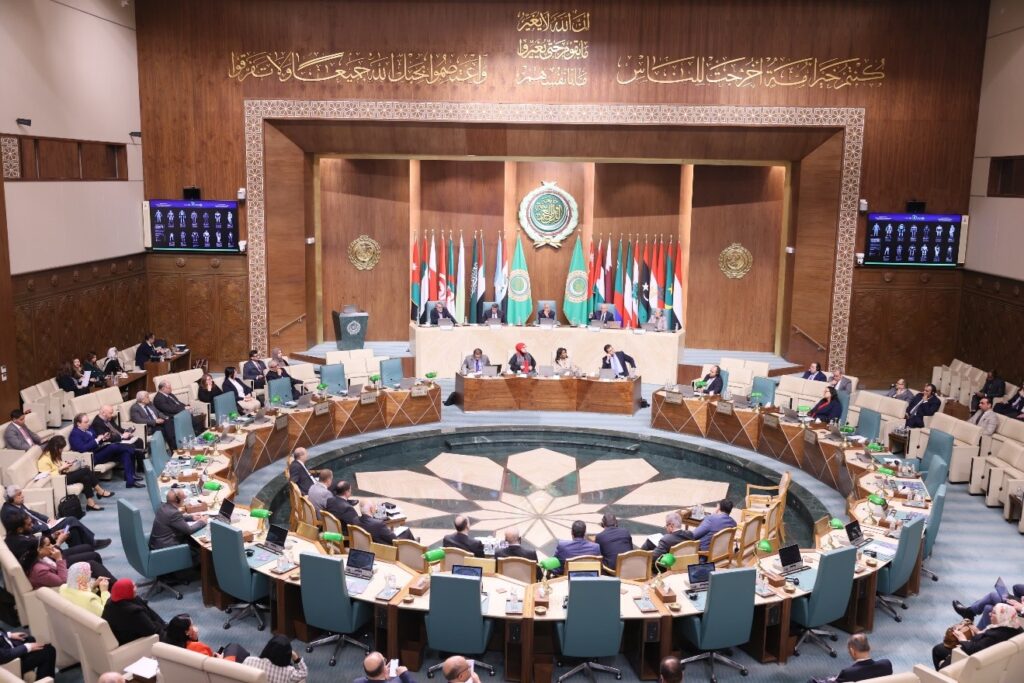Cairo
The Arab Dialogue Circle on “Artificial Intelligence in the Arab World: Innovative Applications and Ethical Challenges” was launched, organized by the General Secretariat of the League of Arab States, in cooperation with the Arab Academy for Science, Technology and Maritime Transport and Naif Arab University for Security Sciences. The sessions were held under the supervision of His Excellency Ahmed Aboul Gheit, Secretary-General of the League of Arab States, who stressed in his opening speech the importance of adopting a strategic approach to developing artificial intelligence in Arab countries, in order to achieve sustainable development and enhance innovation in various sectors.
The dialogue circle aims to provide a platform that brings together experts, decision-makers, and actors in the field of artificial intelligence, to discuss ways to harness this technology to serve development in the Arab world, with a focus on the ethical and legislative challenges associated with its use.
The participation of the Arab Federation for Digital Economy came within the framework of its keenness to support regional efforts to enhance the use of artificial intelligence technologies and employ them in developing vital sectors in Arab countries. During the discussion sessions, the Federation’s representatives reviewed the most prominent initiatives and projects it leads in the field of digital transformation, stressing the importance of enhancing joint Arab cooperation to employ artificial intelligence in the service of sustainable development.
The dialogue session also witnessed in-depth discussions on the challenges of artificial intelligence in the region, and the prospects for benefiting from it in developing education, healthcare, and the economy, with a focus on the need to build capabilities and develop policies that support technological innovation.

During the sessions, Dr. Ayman Mokhtar Ghoneim, Assistant Secretary General of the Federation, presented a working paper on “Governance and Risk Management in Artificial Intelligence Systems According to International Standards.” Ghoneim highlighted how to establish comprehensive regulatory frameworks to ensure the development and application of artificial intelligence systems in a transparent and secure manner that is consistent with international standards such as ISO 42001 and other international specifications concerned with the methodology of managing the risks of developing and operating artificial intelligence systems.
The paper addressed several main topics, most notably :
- Governance challenges in light of the rapid development of digital technologies, and the need for policies that keep pace with these transformations to ensure the ethical and responsible use of artificial intelligence.
- Managing risks associated with artificial intelligence, with a focus on security, economic and social risks, and the importance of developing effective mechanisms to monitor and address them proactively.
- Call for the adoption of good governance principles that promote transparency and accountability in the design and implementation of AI technologies.
In his speech, Ghanem explained the role of these different mechanisms and tools in addressing the different stages of artificial intelligence development, which begin with design and development, passing through the stages of examination, testing, operation, and finally maintenance.

The Assistant Secretary-General also reviewed the Federation’s proposal to establish an Arab center for auditing artificial intelligence systems, to serve as an independent body that evaluates artificial intelligence systems in the Arab region and ensures their compliance with international standards related to cybersecurity, data protection, and fairness in decision-making. He explained that it is of utmost importance to have a regional reference for adopting and governing the system’s outputs, in addition to its role in determining the standards of job skills required for the work of developing, auditing, and governing artificial intelligence.
In his speech, Ghoneim stressed that artificial intelligence represents a real opportunity to support sustainable development in Arab countries, provided that it is developed and employed within an effective governance framework that ensures the protection of the rights of individuals and communities. He also stressed the importance of Arab cooperation in building unified policies that enhance technological capabilities and support responsible innovation.
This participation comes as a confirmation of the role of the Arab Federation for Digital Economy in supporting policies and strategies that enhance the position of the Arab world in the global digital revolution.











